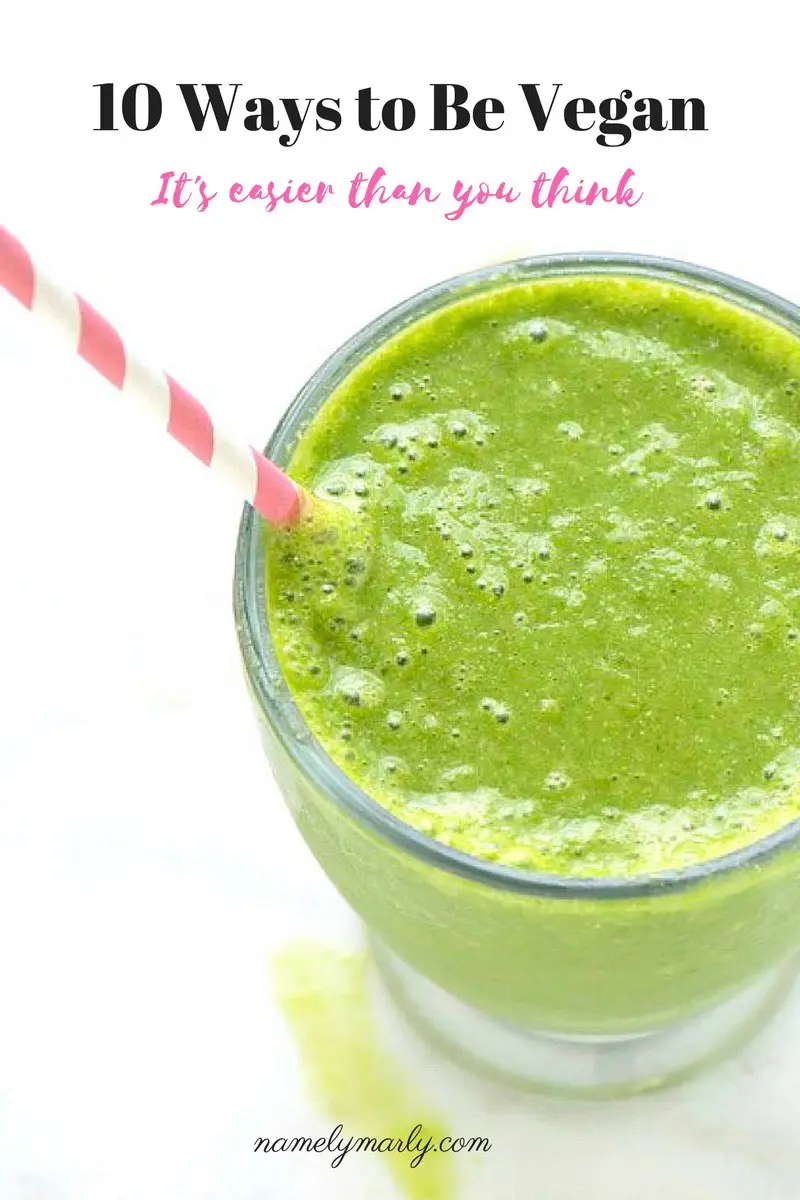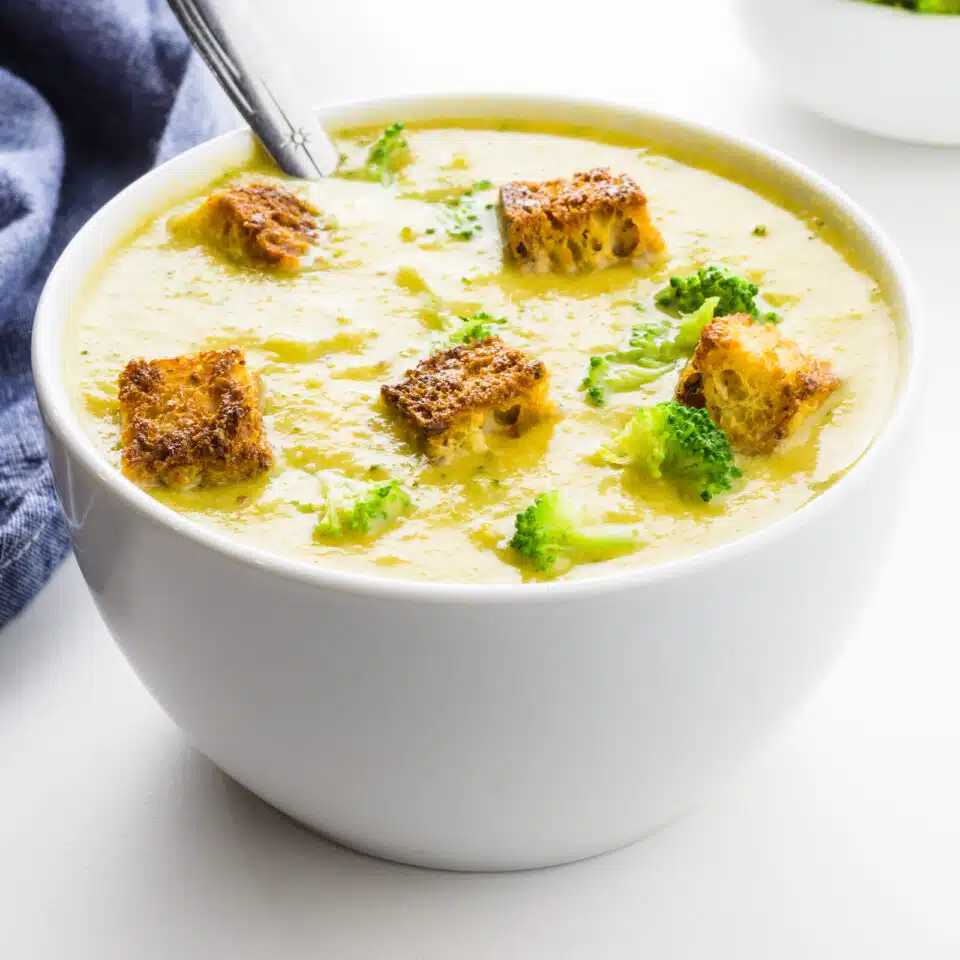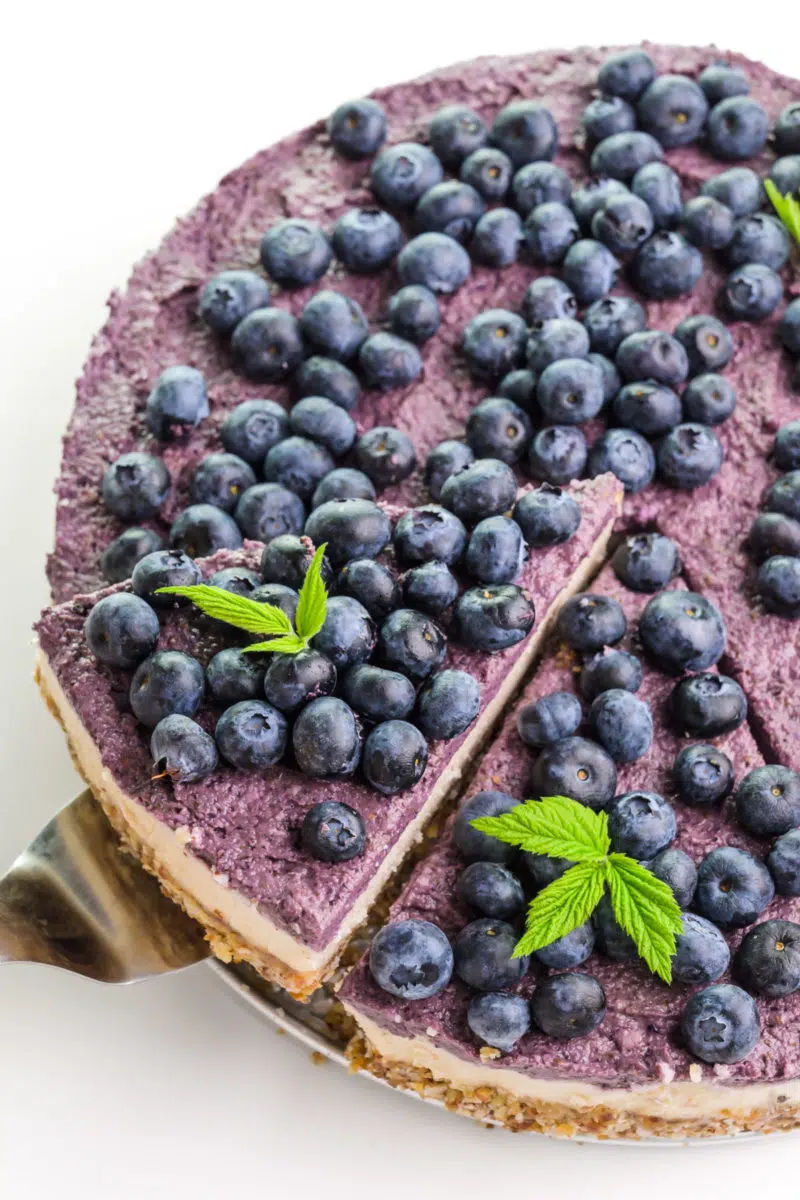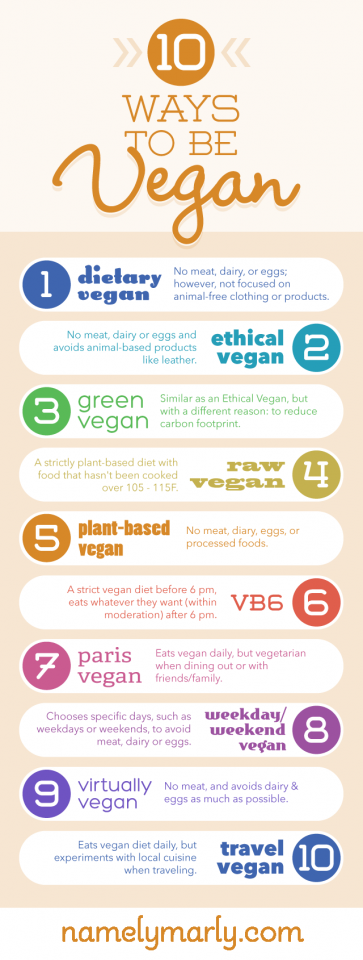10 Types of Vegans
Are you curious about starting a vegan diet, but feel like it’s too limiting? Dive into the world of veganism by learning the different types of vegans and your diet options. Understand vegan’s motivations and discover new vegan options for your diet with this comprehensive guide.

What is a Vegan Diet?
We can define a vegan diet in a nutshell: it excludes eating animal products, including meat, eggs, and dairy.
There are many reasons why people choose a vegan diet, and some of these may surprise you:
- Environmental concerns
- Personal ethical beliefs
- Health concerns
- A desire to try something new
- A tick bite — Some tick bites can leave a person unable to eat mammal-related products. [Source]
Whatever the reason, a vegan diet can be a healthy and mindful way to eat.
There is an abundance of vegan food options available these days. That makes a vegan diet an enjoyable and rewarding lifestyle choice that benefits you and the planet. More on that below.

Different Types of Vegan
I read an article about celebrity vegans going on and off the diet. This made me wonder, can a person be vegan by degrees?
Then I thought about some of the conversations I’ve had with folks throughout the year. There are a lot of people who start a vegan diet but find the day-in-day-out commitment to be less than palatable.
And all this thinking led me to a conclusion: you don’t have to be “whole hog” to be vegan. Um, I think I violated a major vegan law just by saying that.
In fact, after even more deep thoughts on the subject, there are very few people who are 100%, full-throttle vegans in the first place.
Vegan Extremes
Let me explain. If the definition of vegan is to eat or behave in a manner that causes zero animal suffering, then it’s nearly impossible for the average city-dwelling person to be 100% vegan.
Tires, for example, have animal products in them. You can choose not to have a car, but does that mean you won’t ride in any vehicle with tires? It’s hard to imagine most people making that choice.
Thousands of small animals are killed each year in the harvesting of grains and vegetables. Does this mean to be completely vegan, you must grow your own food? Like I say, for most city-dwelling, air-breathing folks, that’s a tall order.
Even for those who are so committed to veganism that they choose to walk on dirt roads and resist the glares of their neighbors by planting their front yard with vegetables, is that truly something they expect from everyone around them?
That would make veganism such a hardship that it would severely limit the number of people who could or would adopt it as a lifestyle.
Secular Vegan
I’m not arguing against becoming a vegan. What I am suggesting, though, is that it’s nearly impossible for most of us to be an extreme vegan. So that’s why I decided to explore these 10 types of vegans concept.
Over the years I’ve realized I’m not an extremist. That means I don’t get into the dogma of veganism. So I coined the term secular vegan.
You can be vegan and be a normal, happy person just trying to do her best.
I figure once the average person realizes you can participate in the vegan arena by selecting a vegan type? That’s really empowering!
There are many ways you can slice and dice a vegan lifestyle, but here are 10 Ways to Be Vegan that I’m sharing with you today:
Dietary Vegan
These are folks that don’t eat meat, dairy or eggs, but are not as picky when it comes to things like leather or non-food animal-based products.
Most dietary vegans are after the health benefits of a vegan diet, which can make this one harder to stick to. Of course, if you’re seeing improvements in certain health measurements, such as lowered cholesterol, that certainly. helps.
If you’re curious about being a dietary vegan, be sure to check out the vegan startup guide for more resources.
Ethical Vegan
Ethical Vegans also don’t eat meat, dairy or eggs, but they take it to the next level by steering clear of animal-based products like leather.
I find most ethical vegans are motivated by their love of animals and don’t want to cause suffering. If you’ve ever seen videos of mama cows being separated from their calves (for dairy farming purposes), it’s understandable.
You could even consider changing up your language. For example, these animal friendly sayings are a playful way to steer clear of animal cruelty.
Green Vegan
A Green Vegan may appear to be the same as an Ethical Vegan, but they do it for a different reason.
A green vegan avoids animal products because of the impacts that industrial farming has on the environment.
A good example that comes to mind for me is Jane Goodall. I read that she chose to give up meat and dairy after visiting factory farms and seeing how the animals were treated, and understanding the impact this has on the environment as a whole.
Having driven by factory farms myself, I completely understand this rationale. It is devastating to see it in person.
Raw Vegan
As the name implies, Raw Vegans eat their food, well, raw! It’s a strictly plant-based diet, and they don’t eat anything that’s been cooked over 105F.
I’ve seen different requirements for the temperature allowance. It’s all about the nutritional impact that cooking has on plants.
If it sounds too restrictive, you should see some of the amazing raw meals they prepare. For example, take a look at this vegan raw cheesecake!

However, itt can be a time-consuming way to live, but there’s no doubt it’s healthy!
Plant-Based Vegan
The main difference between a Plant-Based Vegan and other vegans, is that they’re picky about the source of their food.
Whereas a dietary vegan may feel free to eat processed foods, such as non-dairy cheeses or processed veggie burgers, a Plant-Based Vegan will eschew processed foods for whole foods, such as beans and legumes.
Plant-based vegans prefer all-natural recipes, such as Lentil Sloppy Joes, over using processed veggie crumbles.
The Paris Vegan
Otherwise known as the “Paris Exception” this diet’s poster child is the philosopher Peter Singer. he describes the Paris Vegan this way, “If you find yourself in a fine restaurant, allow yourself to eat what you want, and if you have no access to vegan food, going vegetarian is acceptable.”
Translation? Eat vegan daily, but when you find yourself in a tough spot, don’t beat yourself up for going vegetarian.
Vegan By Day or Hour
Some people choose to eat vegan on certain days of the week or at certain times of the day. Here are some examples.
VB6
Food writer Mark Bittman is the author of the book VB6: Eat Vegan Before 6:00 to Lose Weight and Restore Your Health for Good where he encourages a strict vegan diet (including no meat, dairy, or processed food) before 6 pm each day.
After 6 pm you can eat whatever you want (within moderation). For Bittman, who had been diagnosed pre-diabetic, this solution helped him avoid a lifetime of medications.
Weekday/Weekend Vegan
Some people choose to be vegan on weekdays and eating whatever they want on the weekends. Following this kind of eating plan may work better for people who are not ready for a full-time commitment.
Or maybe it’s the opposite, and they choose vegan on the weekends. You can see how this is a great way to dip your toe in the vegan waters!
Virtually Vegan
Don’t want to take the full vegan plunge? Become a virtual vegan!
This is the type of vegan that doesn’t eat meat and, for the most part, avoids dairy. They don’t buy eggs or milk, but if a trace amount of dairy happens to be in their favorite 12-grain bread, they’re not going to worry about it.
They also aren’t worried about using honey. You know, if you think about it, honey is a very natural sweetener and beekeepers are very motivated to take good care of their bees.
Virtual Vegans probably live a high percentage of their day avoiding animal products, but they’re not going to sweat the small stuff.
Travel Vegan
My daughter created this one and I think it deserves discussion. A Travel Vegan is someone who is vegan most of the time but makes exceptions when traveling.
One of the benefits of travel is exposing yourself to new experiences and cultures. Most cultures have their own music, traditions, and styles. And, yes, they even have defined dishes. Just as you take in the sounds and the sites of these new cultures, you may choose to take in their food as well.
Your avoidance of these foods could hamper your experience and limit your worldview. So, for example, if you’re in France, a Travel Vegan would enjoy a croissant. If they’re in New Orleans, they’d have a beignet. It’s part of the experiences of those cultures.
Bivalve Vegan
I recently had a discussion with Diana Fleischmann, an evolutionary psychologist, who introduced me to the idea of a Bivalve Vegan. It’s a vegan who eats oysters and mussels, aka bivalves.
You might be wrinkling your nose at the thought of this but, Diana raises some outstanding arguments for this diet.
For example, the fact that oysters and mussels are classified as animals is actually controversial. That’s because they fall into a category that doesn’t necessarily meet the definition of an animal.
In addition, the nutrients provided by bivalves offset specific nutritional deficiencies presented by a vegan diet, such as omega-3s.
Vegan Equivalent Diet
In addition to the Bivalve Vegan diet, Dr. Fleischmann spoke to me about how you can make minor tweaks to your omnivore diet to be 90% equivalent vegan when it comes to reducing animal suffering.
Interestingly enough, many people will tell you to give up beef, but Diana suggests that you give up chicken instead. Her reasoning is that you may eat hundreds if not thousands, of chickens in your lifetime.
Think of all the suffering that is involved with that.
However, if you give up chicken and only eat beef, you will eliminate lots of chicken suffering and in your lifetime you may eat the equivalent of one cow.
You’ll need to listen in to get a better idea of Dr. Fleischmann’s points on this, but it’s an interesting discussion and one you might consider on your diet journey.
Levels of Veganism
I love talking about the different types of vegans and vegan diets. I see it as a discussion about choices. At some point, you’re going to make a decision about what percentage of veganism you can afford or be happy with.
For me, that 90 – 98% range works just fine. On a day-to-day basis, I don’t eat any meat, dairy, or eggs. I even read the labels on my garments and shoes and do my best to avoid the ones made with leather and angora.
I don’t ask the waiter if the bun that comes with my veggie burger has egg in it.
These are decisions you will have to make for yourself.
What’s your vegan type? Take the survey to find out!
There have been times when family or friends go out of their way to make me a vegan dish. How nice is that! For example, my sister makes this delicious rice broccoli casserole for Thanksgiving each year.
Then she started making a special batch for my vegan crew and me. I’m pretty sure the soy cheese she bought at her small-town store is the one that has trace amounts of dairy in it.
Can someone please tell me why a soy-based cheese would have dairy in it? I mean, aren’t most people who buy soy cheese wanting to avoid dairy?
Anyway, I refuse to make an issue out of it, and I eat it with the gusto and love it deserves. In my mind, any other reaction would be rude.
Imagine someone going out of their way to make something special for the vegan in their life. Then imagine them receiving a lecture or patronizing comment about how the cheese they used was only 98% vegan. Really?
Besides, my sister can still beat me up. I don’t want to push her over the edge.
Guilt-Free Vegan
I know there are a lot of well-intentioned people who really want to make a vegan lifestyle work. The problem is when they feel guilt over not staying strictly vegan 24/7. I hope this Vegan Types List helps shed some light on the options available.
This is my secular vegan mantra: Do the best you can every day. That’ll do.
Some days are not so good, but others are great, and those are the ones to focus on and strive for. If giving up mozzarella feels like pulling out a fingernail, then just relax about it.
Everything is about balance. Overall, you know you’re making decisions that are so much better for your body, animals, and the environment. My mom loves it when I say this, so here goes: It’s all good.
Either I’m brilliant or my mom is easily amused. Anyway, with time, your taste buds will catch up with you, and you won’t even crave mozzarella cheese anymore. This was my experience!
Or maybe you won’t and you’ll choose to have some from time to time.
I’ll say it again…it’s all good.
If you’re new to a vegan diet, here are some of my favorite vegan recipes for beginners.
Benefits of Veganism
Veganism offers so many health benefits! For example, eating a healthy plant-based diet can lead to lower levels of cholesterol, reduced risk of type 2 diabetes, and even protection from certain types of cancer. [Source]
Studies also show that vegan diets can improve mood and reduce stress.
A plant-based diet also has a lower carbon footprint. A vegan diet will reduce your toll on the environment because animal agriculture is a leading cause of climate change. If the whole world went vegan, we would shave off 8 billion tons of CO2 equivalent. [Source]
Ultimately, veganism is a great way to have a positive influence on your personal health and the planet’s health.
If you’re curious about veganism but don’t think you could do a 24/7 thing, learning about the types of veganism can be helpful.
Veganism can be about you finding your authentic swing and chiseling away at the parts that are inauthentic. That’s a quote, by the way, from one of my favorite books, The Authentic Swing, by Steven Pressfield, the author of The Legend of Bagger Vance.
Conclusion
All these different types of vegan diets are based on the same principle: reducing or eliminating animal-based products.
Each of these vegan-type options can be used to tailor your vegan lifestyle based on your values and preferences.
By learning about the different types of veganism, you take the first step toward a change that can benefit you and our environment.
Then, share this post with your friends and family to help spread the word about different types of veganism and their benefits.

Oh, brave move tho. Being vegan kinda separates you from most of the society in some way and now this article probably separates you from most of the vegans. Although I don’t agree with all you wrote I still find this a good and important article. People need to accept that this are never just black and white.
Britta
Thanks much for writing this! It perfectly sums up the way that I feel, and I know it’s not a popular thought with a large portion of the vegan community! Really great read, well written!
So glad this was helpful, Kristen. There are a lot of options for people who are considering adding more vegetarian/vegan meals!
Hey, everybody: “Seek first to understand, then to be understood.”
So here goes: Marly, thanks for making some important points with this post. Thanks for the message that we should do the best we can. It sounds like you’ve encountered people who didn’t project that message, and those encounters may have prompted this post. I get that, and I share Liza’s (and your) appreciation of Colleen Patrick-Goudreau’s message about the importance of manifesting compassion (to ourselves, and others).
I also want to say, to the advocates who have left critical comments for Marly, I get why you’re unhappy. You see veganism as a justice movement, a struggle against exploitation and oppression, and you’re worried that Marly’s post might be obscuring that point for those who don’t have the same awareness.
That said, I wish that everyone, especially vegans, would post only respectful comments, never demeaning ones. I wish all advocates were expert already in Nonviolent Communication techniques. I wish, but as you know, that’s obviously not the case. So Marly, I hope you can understand the fierce and loving impatience that’s behind some of these criticisms—and I encourage everyone to work on finding more effective ways of expressing themselves in online commenting, and in real life too. It’s not easy, I know.
Before I sign off, I want to share an essay that’s had significant influence on my own thinking. I’m addressing everyone now—Marly and your readers (including those who have expressed criticism here!)—I hope you’ll read this, and see what you think. It’s a short essay by Matt Ball that presents a common-sense, results-oriented approach: (Note from Marly – this link was no longer working and I couldn’t find the page she was alluding to: I’m hoping this one is close enough): https://veganoutreach.org/why-vegan/
Here’s a key excerpt, for your convenience:
– – –
Our guide shouldn’t be an endless list of ingredients, but rather doing our absolute best to stop cruelty to animals….This moves the discussion away from finding a definition or avoiding a certain product, and into the realm of effective advocacy – advocacy in the broadest sense, in every aspect of our lives. In other words, the focus isn’t so much our personal beliefs or specific choices, but rather the animals and their suffering.
If we believe that being vegan is important, we must recognize that being the most effective advocate for the animals is far more important! The impact of our individual veganism – several hundred land animals over the course of a lifetime – pales in comparison to what we have the potential to accomplish with our example. For every single person inspired to change their habits, the impact we have on the world doubles!
– – –
Also, you might appreciate this page with a collection of several other people’s views about the meaning of “vegan” via vegan outreach.
Thanks again, Marly, for making some very important points with this post. I love how you blog to share your favorite vegan recipes. You do a fantastic job showing that vegan living can be delicious and joyful. ♥
P.S. Since you’re also passionate about people and their names, you’ll surely enjoy meeting Melanie Joy, the author of Why We Love Dogs, Eat Pigs, and Wear Cows! Do you know of her work? This is an extremely helpful video I’ve been recommending to vegans: https://www.youtube.com/watch?v=gnQSP6f9iAY
Thanks for your thoughtful opinion. It’s good to see the different perspectives on such a sensitive topic.
I also want to add that I added this on my Facebook page and received the same shaming. Pity.
Thanks for sharing on your FB page. Sorry you were subjected to crankiness as a result. I recommend some good dark chocolate. 😉
I took your advice and read through the comments to get examples of shaming. And shaming it is indeed. It’s the equivalent to saying I’m not Christian because I use birth control. Puh-leease. I absolutely love this post; it expresses my views perfectly. There IS such a thing as being mostly vegan or varying by degrees, and I hate that people have made the definition into a radical all-or-nothing concept. I WILL not call a restaurant ahead to see if their bread contains dairy, and if my mom makes me a specialized dish on Thanksgiving but unknowingly included dairy in it, I’m not gonna turn it away — helloooo, there are starving people in the world. Talk about first world problems. Thank you, thank you, thank you.
Thanks, Sarah. I agree entirely. Black & White thinking is more affiliated with an ideology if you ask me. Hey, I understand some people like to apply very rigid rules for their lives. Requiring others to comply with those rigid rules in order to be a member of “their” group is not a very inclusive or sustainable approach.
I like you:) lol great post
I saw this comment on FB and thought it addressed things perfectly:
“You don’t get a certificate for purity when you become vegan. If you are looking for perfection (in yourself or others), you have forgotten that being vegan is about manifesting compassion – not a means to become 100% pure. There is no such thing in our imperfect world. The animals need us to aspire to compassion not perfection.
Don’t Do Nothing Because You Can’t Do Everything. Do Something. ANYTHING!” – Colleen Patrick-Goudreau
I might add that you can start by manifesting compassion to others who might find being vegan more of a struggle than you might.
Thank you SO much for this comment, Liza. It’s beautiful in and of itself. Love that quote too. I might have to hang that up by my desk because it really says what we all need to be reminded of. Compassion towards each other is so important. Thank you!
I really love your blog Marly. I will have to peruse more when I have a bit more time. By the way, I found the link to your blog on Heather Nicholds Facebook page.
Thanks, Liza! It means a lot. I love Heather and saw her share on Twitter about this post. Very cool!
Wrong. You’re vegan or you’re plant-based. There are no nuances to veganism but there could be to the degree to which you are plant-based. If you don’t choose to be vegan so be it but then just call yourself plant based. Is that so hard or confusing?
Dietary choices do not make one a vegan, but they sure exclude one from using that term. To be inclusive, we need to consider other animals in our community; otherwise, we are nothing but speciesist. Despicable cruelty should never be tolerated.
Either you’re an ethical vegan or you’re not a vegan. There is no such thing as a part-time vegan, an after-six vegan, a pesco-vegan, a “practical” vegan (Carrie Underwood is “famous” for this as she won’t send food back if it “accidently” contains an animal product), etc. There is no such thing as a dietary vegan or a plant-based vegan. That’s called being on a plant-based diet, as nothing other than one’s food intake is changed. It angers me deeply when media posts news about another celeb “going vegan” when all they’re doing is going on a temporary plant-based diet …. usually it means free advertising for a soon-to-be-released CD.) STOP IT. CALL IT LIKE IT IS. If it’s not about the animals and the environment and it’s just about YOUR health, you’re not a vegan. Get off the bandwagon.